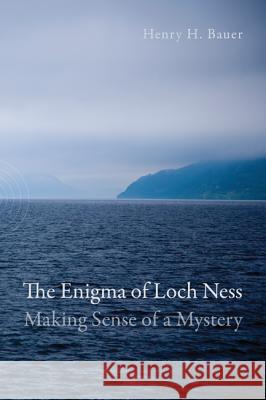The Enigma of Loch Ness » książka
The Enigma of Loch Ness
ISBN-13: 9781620322314 / Angielski / Miękka / 2012 / 258 str.
Description:Like UFOs, Big Foot, and the Bermuda Triangle, the Loch Ness monster continues to fascinate us by the persistence of its mystery. While many authors have focused upon the search for Nessie, Bauer is the first to present a detailed and balanced look at the history of the controversy surrounding this search.Bauer is much more concerned with examining the sociological, psychological, and philosophical aspects of the Loch Ness controversy than with proving or disproving Nessies existence. He shows that the Nessie phenomenon has much to tell us about how we acquire our beliefs, about the nature of the scientific enterprise, and about the adversarial relationship between mainstream science and ""fringe"" subjects, such as Nessie.The result of more than a decade of research, Bauers study includes both famous and little known photos and illustrations, the most complete bibliography yet compiled on the subject, and a list of close to 800 reported sightings. Whether you believe in Nessie or laugh at the mere thought of believing, youll find The Enigma of Loch Ness both entertaining and enlightening.Endorsements:""[E]xceptionally well written and well researched. . . . Fascinating discussion of societys attitude toward anomalous beliefs and claims, and of the nature of science.""--Good Book Guide""We need more books of this type . . . putting the whole Nessie question (as well as other cryptozoological creatures) in perspective.""--American Rationalist""[O]riginal . . . thought-provoking . . . [discusses] the dilemma of contemporary society when confronted with knowledge that is not science.""--Wilson Library BulletinAbout the Contributor(s):Henry H. Bauer is Professor Emeritus of Chemistry and Science Studies and Dean Emeritus of Arts & Sciences, Virginia Polytechnic Institute and State University (Virginia Tech). Earlier he had worked at the Universities of Sydney, Michigan, Southampton, and Kentucky. His publications include more than a hundred articles and eleven books, most recently Dogmatism in Science and Medicine: How Dominant Theories Monopolize Research and Stifle the Search for Truth (2012).











